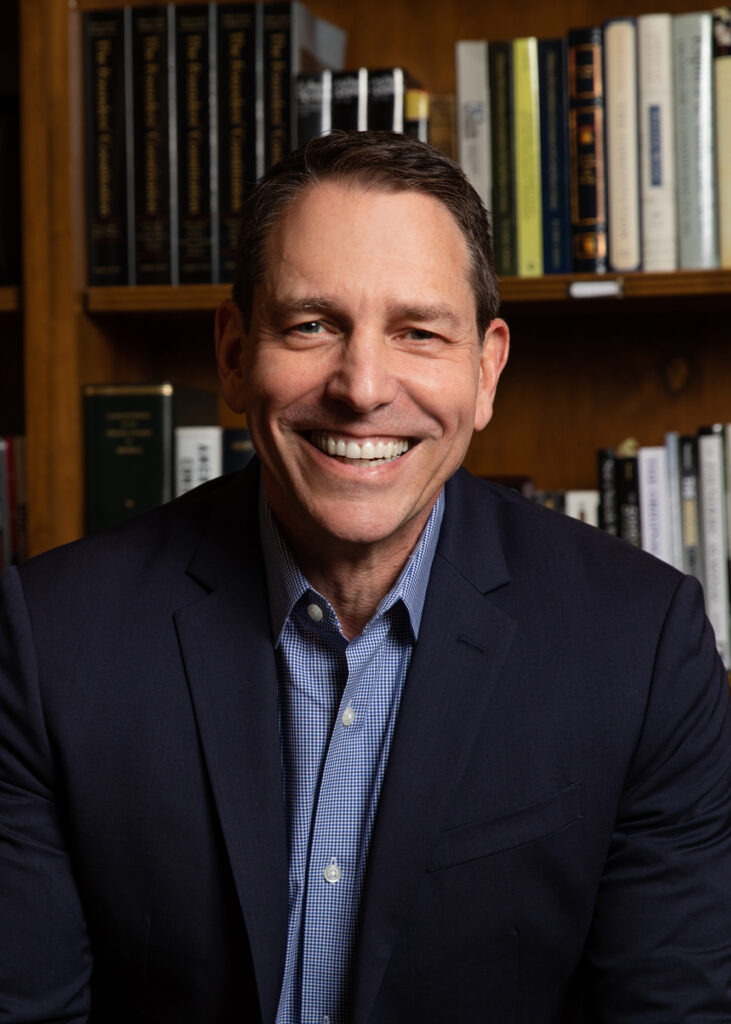
What happens when the federal government cracks down on everyday Americans who oppose its agenda? What happens when, even after elections aimed at limiting centralized power, Washington, D.C. continues to overstep its bounds?
Today, we face the formidable task of addressing a federal authority that seems disconnected from the grassroots mechanisms of democracy and effecting change within our Constitutional Republic. Between “weaponized” institutions of justice and the seeming futility of elections, not to mention government-sponsored censorship schemes, the American people feel that they have no voice — and when the masses feel that they have no voice, drastic, radical measures are bound to be employed.
Frustration with the federal government is palpable; disillusionment is ubiquitous. This trend is illustrated by recent polling data, which shows that Congress’s disapproval rating has not dipped below 80 percent this year. Meanwhile, the president’s disapproval score recently climbed to a two-year high.
Today, we face the formidable task of addressing a federal authority that seems disconnected from the grassroots mechanisms of democracy and effecting change within our Constitutional Republic.
But the problem is much broader than that. Typically, in a robust Republic, the electorate would exercise its authority by voting out an unpopular administration or representative. However, the issues we face today run deeper than the failures and faults of any single corrupt politician and cannot be remedied merely by ousting them from office.
Indeed, we have tried that before — many times. From Ronald Reagan to the Tea Party movement to the present day, well-intentioned politicians have fallen short of their promises to reduce federal spending and growth. After decades of committed effort to rein in the administrative state, the wisdom of Reagan seems more pertinent than ever: “No government ever voluntarily reduces itself in size,” he said. “Government programs, once launched, never disappear.”
This does not mean that the Founders’ work was fundamentally flawed; instead, it highlights the brilliance and foresight of their labor. George Mason, the “Father of the Bill of Rights,” for example, “verily believed” that the “Government [would eventually] become oppressive.” In order to mitigate this scenario, he and his fellow delegates at the 1787 Constitutional Convention unanimously agreed to add a state-centric mode of amendment to Article V. By allowing the states, via an amendments convention, to “correct” the abuses of an out-of-control, “corrupt, tyrannical aristocracy,” the Founders ensured that, even if the ordinary means of representative change proved ineffectual, “We the People” would still possess the vehicle for driving reform.
Those who contend that we “should not touch the Constitution,” appear not to have read George Washington’s advice on the subject. “If in the opinion of the people, the distribution or modification of the constitutional powers be in any particular wrong,” he urged, “let it be corrected by an amendment in the way which the Constitution designates.” Nor have they consulted Alexander Hamilton’s expertise. In Federalist 85, Hamilton reassured his readers that they never needed to fear “the encroachments of the national authority” as long as they made use of the Article V convention method for amending the Constitution. In language strikingly similar to Reagan’s observation about the unwillingness of government to reduce itself in size, he argued that the concern that “persons delegated to the administration of the national government will always be disinclined to yield up any portion of [their] authority” would prove “futile”— if the people employed Article V.
In Federalist 85, Hamilton reassured his readers that they never needed to fear “the encroachments of the national authority” as long as they made use of the Article V convention method for amending the Constitution.
Of course, it would be both foolish and neglectful to disregard such insightful historical counsel, especially when we face the very crisis Article V was designed to alleviate. That’s why, in 2013, after the disappointment of the 2010 Tea Party mid-term election wave, Dr. Michael Farris and I co-founded Convention of States Action, a nationwide grassroots army, to call the first-ever Article V convention.
As outlined in Article V, the process entails 34 states submitting applications to Congress, compelling Congress to convene a state-led convention. In alignment with our resolution, the focus of this convention would be constrained to proposing amendments curbing federal spending, power, and terms of office. Subsequently, any amendment adopted by the convention would return to the state legislatures for three-fourths ratification.
Although our critics express concerns that an Article V convention might expose the Constitution to a wholesale rewrite, such apprehensions are ultimately unfounded. Any “rogue” amendment, deemed non-germane to the intended purpose of the convention, would be swiftly rejected. Moreover, the requirement for approval from 34 states ensures that even in the unlikely event that such a proposal made it out of the convention, it would never garner the broad, bipartisan support necessary for ratification.
Rest assured, Convention of States has no intention of rewriting the Constitution — we mean only to reinforce the Founders’ original principles of limited government.
Backed by Republican Vice Presidential nominee JD Vance and many nationally recognized conservatives, including Sen. Rick Santorum, Gov. Ron DeSantis, Ben Shapiro, Mark Levin, and Heritage Foundation President Kevin Roberts, this movement boasts an even more powerful endorsement — bipartisan support from the grassroots, plus 19 states that have already passed the resolution. With millions of engaged citizens representing a spectrum of political beliefs, Convention of States amplifies the resounding demand for political reform: fed up with stagnation and inefficiency, we stand united to wrest back control from the federal government using the Founders’ solution as big as the problem.
Mark Meckler is president and co-founder of Convention of States Action.




